Search
09531 Techniques for Monitoring Conditions Leading to SCC of Carbon Steel in Fuel Grade Ethanol
Also Purchased
09528 Corrosion and SCC Issues in Fuel Ethanol and Biofuels
Product Number:
51300-09528-SG
ISBN:
09528 2009 CP
Publication Date:
2009
$20.00
09530 SCC Behavior of Steel in Fuel Ethanol and Butanol
Product Number:
51300-09530-SG
ISBN:
09530 2009 CP
Publication Date:
2009
$20.00
07574 SCC of Carbon Steel in Fuel Ethanol Service: Effect of Corrosion Potential and Ethanol Processing Source
Product Number:
51300-07574-SG
ISBN:
07574 2007 CP
Publication Date:
07574
$20.00




